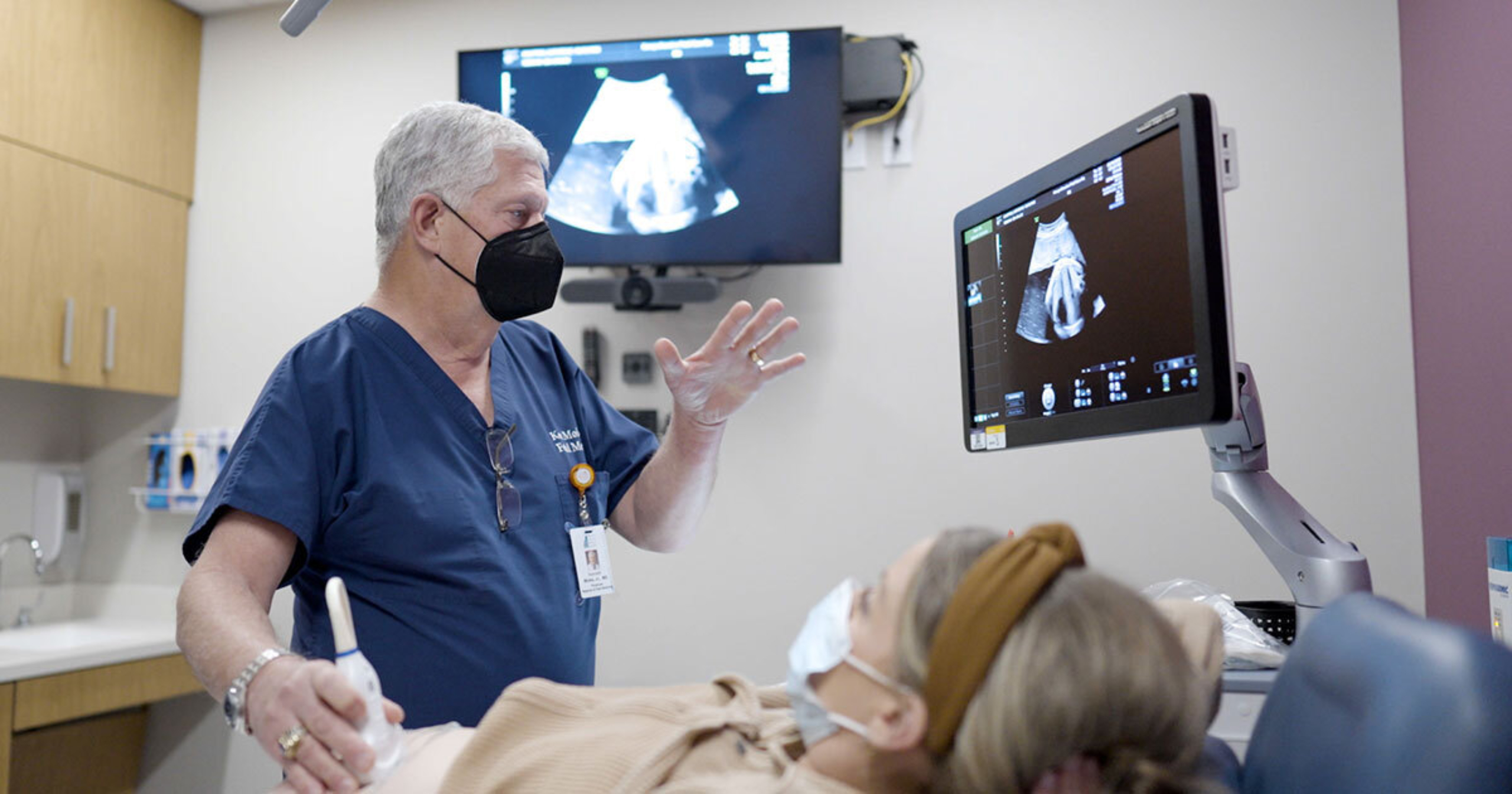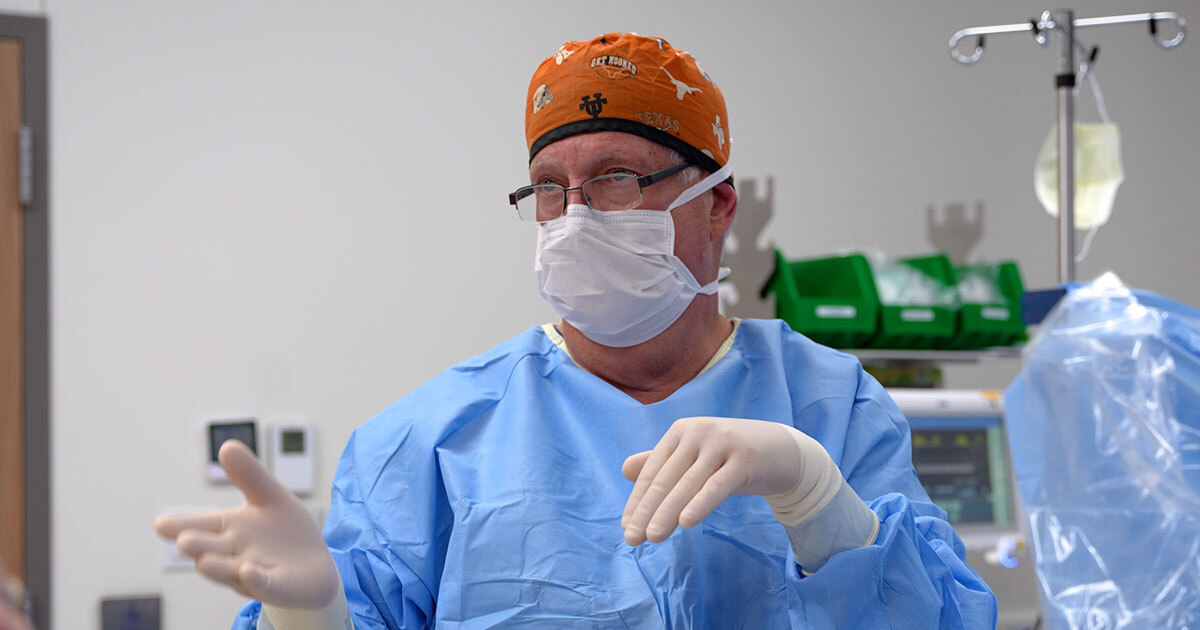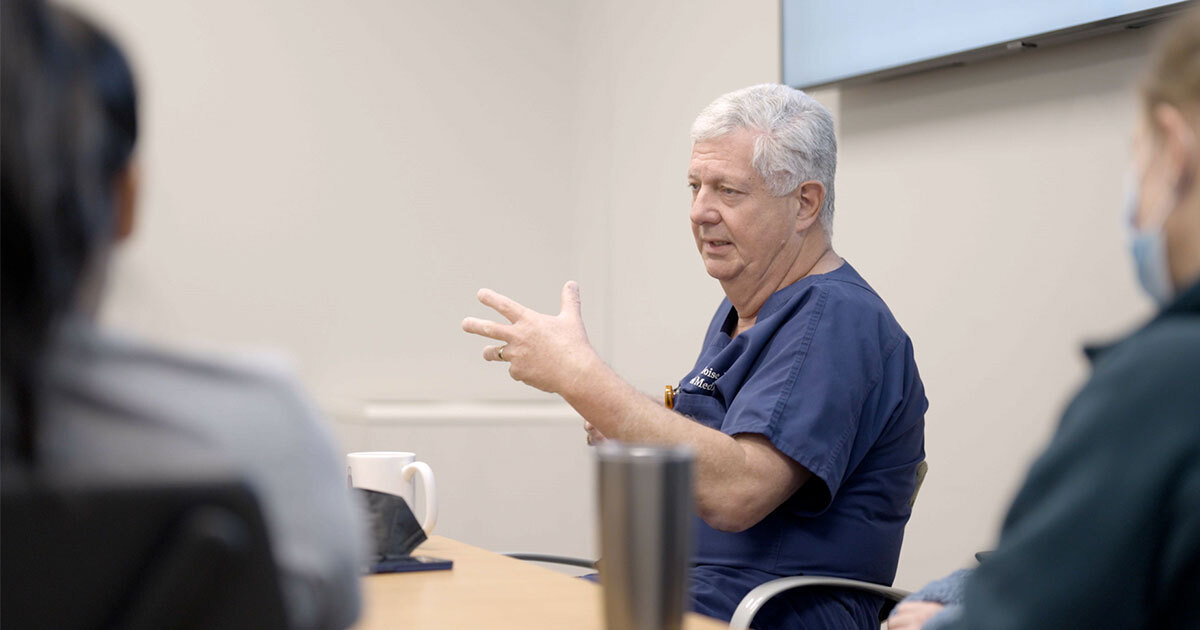Committed to Trust
Listening to your health goals and helping you achieve them
Reviewed by: Kenneth J. Moise, Jr., MD
Video by: Emily Kinsolving
Written by: Ashley Lawrence and Gene Lazuta
Expectant parents who receive a diagnosis of a potentially serious fetal issue experience a range of emotions, and establishing care with a provider you trust can help improve your health outcomes. UT Health Austin fetal medicine specialist Kenneth Moise, Jr., MD, brings together a team of specialists who are prepared to listen to your health goals and help you achieve them. As Director of the Comprehensive Fetal Care Center, a clinical partnership between Dell Children’s Medical Center and UT Health Austin, Dr. Moise emphasizes the importance of family-centered care that includes care for the mother and baby before, during, and after pregnancy.
“It’s important to remember that a few days before a patient comes to see us, they thought they were carrying a normal baby. Now, that patient is being told their baby has a serious fetal condition, and they’re distraught,” explains Dr. Moise. “Having a compassionate team with experience in addressing all aspects of the patient’s health is paramount to what we do.”

The Comprehensive Fetal Care Center is the first and only comprehensive program in Central Texas that provides care for babies with congenital conditions, including care for the mother and baby during pregnancy, delivery of the baby, and care of the baby after birth, all in one place. Patients being cared for by the Comprehensive Fetal Care Center are able to receive their obstetrical care at the Maternal Care Center (MCC), a high-risk obstetrics clinic located in the same suite as the Comprehensive Fetal Care Center. This integration of maternal and fetal care enhances the overall experience for patients and their families and allows for close collaboration between fetal medicine specialists and obstetricians.

“I can’t do what I do without the support of my team,” says Dr. Moise. “For some surgeries, there may be upwards of 30 people in the room. I’m just one part of a whole that must work together to ensure a successful outcome.”
It is his commitment to mothers and their children that has motivated Dr. Moise to establish two fetal care centers in the Houston area, one at Texas Children’s Hospital and one at Children’s Memorial Hermann Hospital, as well as a center at the University of North Carolina. When he joined UT Health Austin in 2021, Dr. Moise launched the Comprehensive Fetal Care Center, making this the latest phase in a decades-long career at the forefront of fetal medicine that has helped establish the standards of prenatal care that patients rely on today.

“It’s always exciting to train the next generation of doctors,” shares Dr. Moise. “In my lifetime, I’ve seen this specialty develop along with the technology and tools we use to diagnose and treat our patients.”
By serving as a professor in the Dell Medical School Department of Women’s Health, Dr. Moise provides education and training for the next generation of fetal care providers. He also provides subspecialty training in maternal-fetal medicine for residents through the Dell Medical School Obstetrics and Gynecology Residency program.
“Working with clinicians who are entering our field allows me to offer my expertise and experience as a foundation upon which they can build. I liken it to throwing a pebble in the water and watching the ripples spread out, farther and farther as they go. Those ripples are the clinicians we train, touching more and more lives and making the future healthier and happier for generations to come.”
Dr. Moise is recognized world-wide for his contributions in the fetal treatment of Rh disease, also known as hemolytic disease of the fetus and newborn (HDFN), including the development of middle cerebral artery Doppler for the non-invasive detection of fetal anemia, a condition caused by an immune response due to an incompatibility between the blood type of the mother and the fetus. To diagnose fetal anemia, clinicians traditionally use fluid extracted during amniocentesis, which involves removing and testing a small sample of cells from amniotic fluid, the fluid that surrounds the baby in the womb. But because Doppler ultrasound uses sound waves to produce images of the blood flowing through blood vessels, the middle cerebral artery Doppler method Dr. Moise helped refine can detect fetal anemia in a safer and less painful way.
“New techniques and diagnoses to help unborn babies reach their full potential are constantly emerging, and it’s what keeps me going,” says Dr. Moise. “It’s just so gratifying to know that you have made a difference that will last for a person’s entire lifetime. While it is a big responsibility, the cards and letters as well as the notes and updates I get from people, who are now healthy adults going to college or thinking about starting families of their own, drives me to work that much harder, and it inspires me to pursue ways to make care in the future even better.”